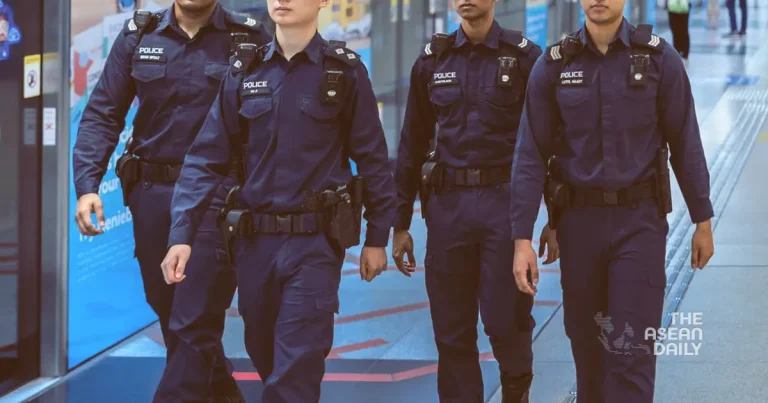25-7-2024 (SINGAPORE) Singapore’s Internal Security Department (ISD) has reported an escalation in the terrorism threat level within the city-state, citing the ongoing Israel-Hamas conflict as a catalyst for increased global violence. The annual terrorism report, released on July 25, highlights how terrorist elements have exploited the conflict to further their agendas, leading to a surge in anti-Singapore sentiment on social media platforms.
The report emphasises that while there is no immediate threat to Singapore, the nation must remain vigilant. This caution stems from historical precedents, such as the 1985 incident where a Palestinian terrorist targeted the Israeli Embassy with a bomb at Faber House.
Singapore’s involvement in Operation Prosperity Guardian, an international maritime security force countering Yemeni Houthi rebel attacks in the Red Sea, has drawn criticism from regional extremists. The ISD noted an increase in social media posts calling for attacks against Singapore, including threats of bombings and calls for the country’s destruction.
The Israel-Hamas conflict, which erupted on October 7, 2023, has had far-reaching consequences. US intelligence assessments suggest the war will have a generational impact on terrorism, with over 40,000 casualties reported thus far. The conflict has triggered a wave of hate crimes and religiously motivated attacks globally.
Self-radicalisation remains the primary domestic threat in Singapore. Since 2015, 52 self-radicalised individuals, including 40 Singaporeans, have been subject to orders under the Internal Security Act (ISA). Alarmingly, 13 of these Singaporeans were aged 20 or younger.
In the past year, three new cases of self-radicalisation have been addressed under the ISA. These include two boys, aged 14 and 16, and a 33-year-old Singaporean woman, all of whom were issued restriction orders. The 14-year-old secondary school student is now the youngest person in Singapore to receive such an order.
The ISD report also highlights the growing concern of far-right extremism, describing it as a fast-evolving security threat. This form of extremism, which advocates violence to safeguard ethnic purity or achieve political objectives, has become increasingly prominent globally, particularly in Western nations.
The agency warns that young people are especially vulnerable to far-right ideologies, which can offer a misguided sense of belonging and identity. Two cases of local youths being radicalised by far-right extremism have been detected in Singapore, including a 16-year-old boy of Chinese ethnicity who identified as a white supremacist.
Regarding terrorism financing, the ISD reports that despite the rise of cryptocurrencies, ISIS and its affiliates primarily rely on cash couriers and informal value transfer systems. Since 2015, Singapore has seen 13 convictions under the Terrorism (Suppression of Financing) Act.
The Israel-Hamas conflict has also been exploited for terrorism financing purposes, with charities and non-governmental organisations reportedly used as fronts for fund collection. The ISD urges Singaporeans to exercise caution when donating aid and recommends using established charities such as the Red Cross and the Rahmatan Lil Alamin Foundation.




